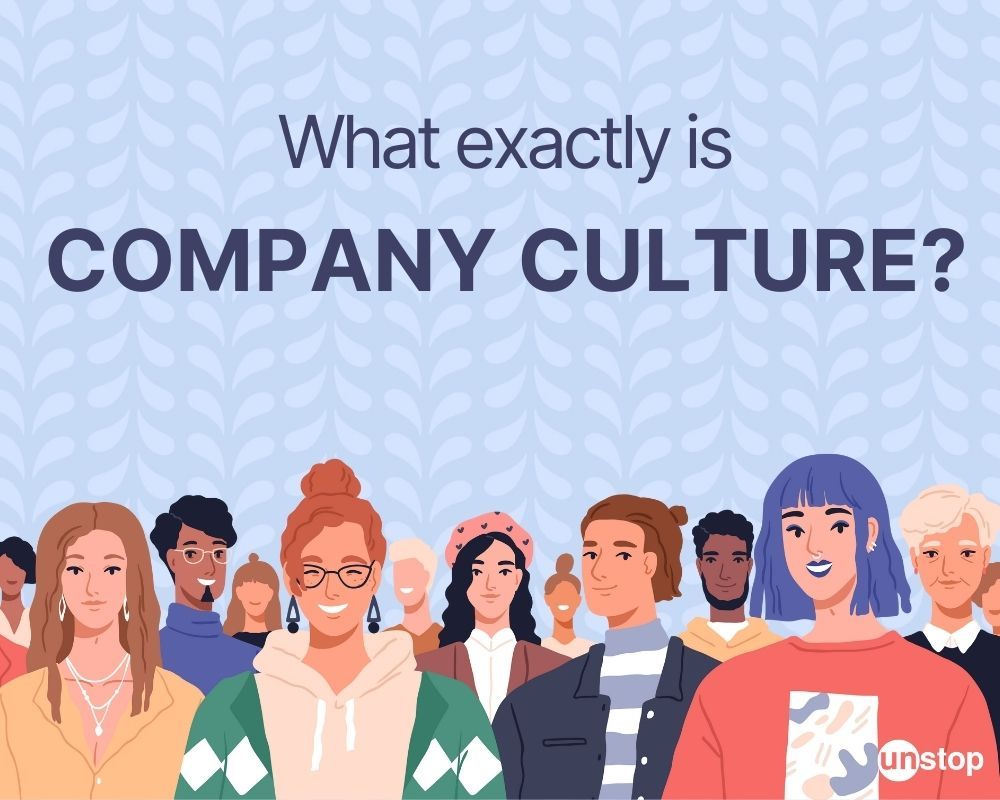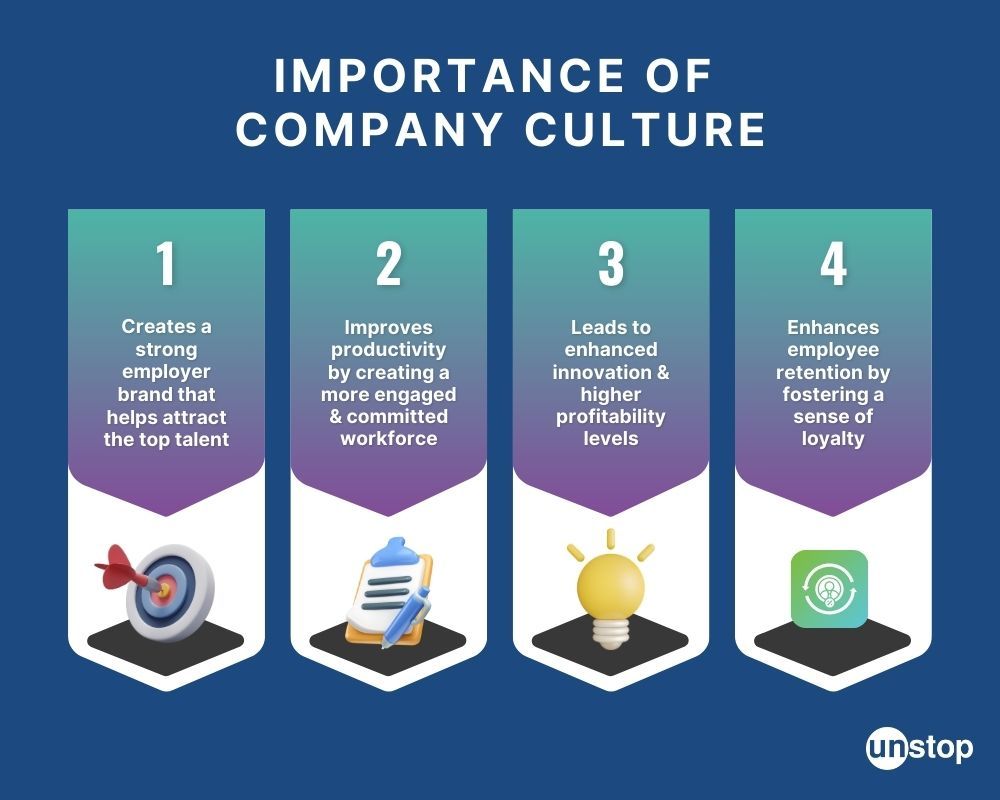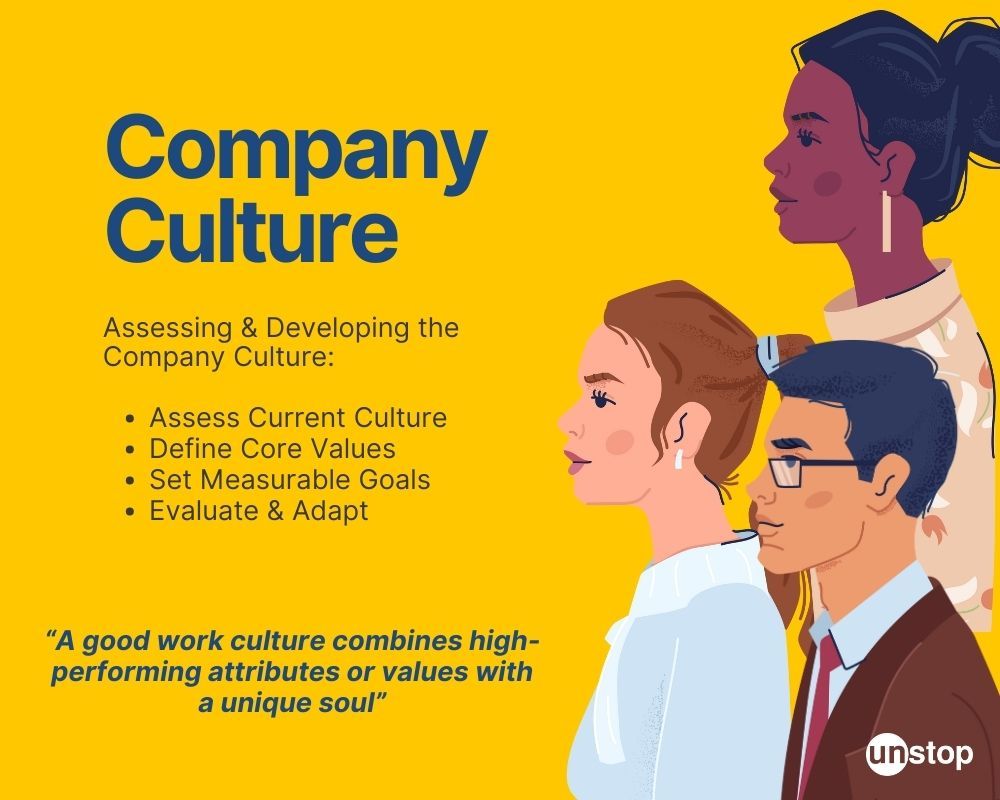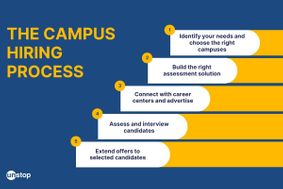- Top Employee Onboarding Software
- Why Use Employee Onboarding Software?
- Key Features of Effective Onboarding Software
- How To Choose The Right Onboarding Software?
- Which is the Best Onboarding Software?
- Frequently Asked Questions (FAQs)
- What Is Upskill And Reskill?
- Difference Between Reskilling And Upskilling
- Upskilling for Workplace Advancement
- Reskilling for Career Transformation
- Crafting Successful Upskill and Reskill Strategies
- Upskill And Reskill Strategizing: Things to Keep in Mind
- Measuring the Impact of Skill Development Initiatives
- Frequently Asked Questions
- What’s a Skill Gap?
- Employee Skill Gap Analysis: Why Do We Need It?
- How To Conduct Employee Skill Gap Analysis?
- Addressing Skill Gaps Through Training and Hiring
- Utilizing Skills Gap Analysis for Strategic Planning
- Leveraging Employee Skill Gap Analysis: Things To Keep In Mind
- Frequently Asked Questions
- Transformative Role of AI in Talent Acquisition
- Impact of AI on Business Recruiting
- Overcoming Challenges in AI-Driven Talent Acquisition
- Starting with AI in Talent Acquisition
- Future Landscape of AI in Talent Acquisition
- Frequently Asked Questions
- HR In The Hot Seat - Challenges With Evolving Workforce
- Mastering Effective HR Management: Tips For Overcoming Challenges
- Summing Up
- The Future of HR: Key Trends for 2024
- Skill-Based Hiring
- Prioritizing Employee Experience, Engagement & Well-being
- AI-Empowered Workforce Evolution and Its Impact
- Taking Diversity, Equity, and Inclusion Beyond Mandates
- Hybrid and Remote Work
- Embracing the Gig Economy and Blended Workforce
- Transparent HR Practices
- Climate Change Adaptation in HR Practices
- Leveraging HR Analytics for Data-Driven Decisions
- Continuous Learning & Development to Improve Productivity
- The Office Buzz in 2024
- Bottom Line - HR Operating Model Needs A Shift
- Importance and Impact of Recognizing Employee Birthdays
- Professional Birthday Wishes for Employees (All Experience Levels)
- Personalized Birthday Wishes for Employees in Different Roles
- Fun Birthday Wishes for Employees (with Templates)
- Birthday Wishes for Remote Employees
- Heartfelt Birthday Wishes for Employees
- Belated Birthday Wishes for Employees
- Simple & Sweet Birthday Wishes for Employees
- Celebrating Employee Birthdays: Ideas and Traditions
- Tips and Ideas for Sending Birthday Wishes to Employees
- Closing Thoughts
- Frequently Asked Questions
- What Is An Employee Referral?
- Benefits of Implementing Employee Referral Programs
- Setting Up an Effective Employee Referral Program
- Employee Referral Email
- Employee Referral Scheme
- Overcoming Challenges of Employee Referrals
- Companies with Best Employee Referral Programs
- Employee Referral Programs: Best Practices
- Closing Thoughts
- Frequently Asked Questions (FAQs)
- Importance of Team Building Activities
- Types of Team Building Activities
- Outdoor Team Building Activities for Employees
- Indoor Team Building Activities for Employees
- Easy Team Building Activities for Remote Employees
- Team Building Activities For New Employees (Icebreakers)
- Fun Team Building Activities for Different Goals
- To Boost Communication and Collaboration
- To Reduce Stress Levels and Promote Well-being
- Aligning Team Purpose and Values with Strategic Activities
- Final Remarks
- Frequently Asked Questions
- Importance of Employee Appreciation Quotes
- Work Appreciation Quotes for Employees
- Employee Appreciation Quotes for Hard Work Recognition
- Employee Appreciation Quotes for Teamwork and Collaboration
- Appreciation Quotes for Celebrating Employee Anniversaries and Milestones
- Employee Appreciation Quotes for Strong Work Ethics
- Employee Appreciation Quotes for Project & Goal Completion
- Employee Appreciation Quotes for Quality of Work
- Employee Appreciation Quotes for Creativity and Innovation
- Appreciation Quotes for Managers
- Peer-to-Peer Employee Appreciation Quotes
- Appreciation Quotes for Employees Leaving the Company
- Employee Appreciation Quotes for Thoughtful Gestures
- Funny Employee Appreciation Quotes
- Short Employee Appreciation Quotes
- Employee Appreciation Quotes for Different Roles
- Employee Appreciation Quotes for Senior Leadership
- Creative Ways to Use Employee Appreciation Quotes
- Summary
- Frequently Asked Questions (FAQs)
- What is Employee Satisfaction?
- Importance of Employee Satisfaction
- Objectives of Employee Satisfaction
- Employee Satisfaction vs. Employee Engagement
- Key Reasons for Employee Dissatisfaction
- Strategies for Improving Employee Satisfaction
- Ways to Measure Employee Satisfaction
- Best Practices for High Employee Satisfaction
- Final Remarks
- Frequently Asked Questions (FAQs)
- How to Craft Effective Employee Appraisal Comments
- Key Areas to Focus in Performance Review
- Comments On Hard Work & Dedication
- Assessing Interpersonal Skills
- Evaluating the Ability to Collaborate & Work in Teams
- Gauging Punctuality
- Commenting on Communication Style
- Reviewing Time Management and Productivity
- Leadership in Performance Appraisals
- Assessing Creativity & Innovation
- Evaluating Problem-Solving Abilities
- Recognizing Flexibility and Dependability in Reviews
- Employee Appraisal Comments for Different Roles
- Summary
- Frequently Asked Questions (FAQs)
- Employee Grievance Meaning
- Importance of Employee Grievance Process
- Types of Workplace Grievances
- Reasons for Employee Grievances
- Employee Grievance Procedure
- Steps in the Employee Grievance Handling Process
- Employee Grievance Form Example
- Final Remarks
- Frequently Asked Questions (FAQs)
- What is Company Culture?
- Importance of Company Culture
- Types of Company Culture
- Factors Contributing to Organizational Culture
- Assessing & Developing Corporate Culture
- Company Culture - It’s not just Perks or Feels
- Good Company Culture Examples
- Developing Company Culture: Best Practices
- Closing Thoughts
- Frequently Asked Questions (FAQs)
- What is Employee Empowerment?
- Benefits of Empowering Employees
- Employee Empowerment vs. Micromanagement
- Strategies for Effective Employee Empowerment
- Role of Managers in Fostering Empowerment
- Organizational Structure Supporting Empowerment
- Overcoming Barriers to Employee Empowerment
- Frequently Asked Questions (FAQs)
- What is Employer Branding?
- Importance of Employer Branding Strategy
- How to Build an Employer Branding Strategy?
- Strategies for Building a Strong Employer Brand
- How to Measure and Boost Your Employer Branding Success?
- Examples of Strong Employer Brand Strategy
- Best Practices for an Effective Employer Branding Strategy
- Closing Thoughts
- Frequently Asked Questions (FAQs)
- What are Employee Wellness Programs?
- Importance of Employee Wellness Programs
- Examples of Employee Wellness Programs
- Real-Life Examples of Corporate Wellness Programs
- Strategies for Encouraging Participation
- Supporting Diverse Employee Needs
- Creating Comprehensive Wellness Programs
- Measuring the Impact on Business and Employees
- Closing Thoughts
- Frequently Asked Questions (FAQs)
- What is Talent Management?
- Developing a Winning Talent Management Strategy
- Models and Frameworks
- Tips for Framing Effective Talent Management Strategy
- Looking Ahead: Recent Trends in Talent Management
- Frequently Asked Questions
- Role of AI in HR: Addressing Common Challenges
- Artificial Intelligence in HR Processes
- AI Tools for HR Functions
- How to Adopt AI in HR?
- Addressing Challenges of AI in HR
- Ethical and Responsible AI Use
- The Future of AI in HR
- Closing Thoughts
- Frequently Asked Questions
- What is Performance Management?
- Elements of Effective Performance Management
- Performance Management Cycle
- Differentiating Performance Management
- Benefits of Performance Management With Examples
- Challenges faced in Performance Management and their Solutions
- Future Trends in Performance Management
- Frequently Asked Questions
- Changing Role of HRM
- Changing Role Of HR Manager
- Technology and the Changing Role of HRM
- The Rise of AI and Machine Learning in HR
- Mobile Technology's Impact on HR Practices
- The Significance of People Analytics in HR
- Navigating the Future of HR Technology
- Final Remarks
- Frequently Asked Questions
- Compensation Management Meaning
- Compensation Types
- Breaking Down The Compensation Management Process
- HR Software for Compensation Management
- Current Trends in Compensation Management
- Frequently Asked Questions
- Defining Flexible Work Arrangements
- Flexible Working: Advantages for Businesses
- Challenges of Flexible Work Arrangements
- Crafting Flexible Working Practices
- Types Of Flexible Work Arrangements
- Comparing Flexible Work Arrangements
- Real-Life Examples of Flexible Work Arrangements
- Final Remarks
- Frequently Asked Questions
- Conflict Resolution Meaning
- Conflict Origins
- Tried & Tested Conflict Resolution Strategies
- Methods of Conflict Management at Workplaces
- Conflict Resolution Strategies: Top Management Tips
- Summary
- Frequently Asked Questions
- Career Development Meaning
- Career Development Plan for Employees
- Career Development in HRM: Growth Ideas For Employees
- Issues in Career Development and Their Solutions
- Closing Thoughts
- Frequently Asked Questions
- Understanding Compensation
- Exploring Benefits
- Difference between Compensation and Benefits
- Compensation & Benefits Structure
- Final Remarks
- Frequently Asked Questions
- Defining Recruitment in HR Practices
- Exploring Talent Acquisition in HR
- Understanding Talent Acquisition vs Recruitment
- When to Recruit or Acquire Talent
- Talent Acquisition vs Recruitment: Responsibilities
- From Recruitment To Talent Acquisition
- Closing Thoughts
- Frequently Asked Questions
- Work Culture Meaning
- Types of Work Cultures
- Components of Culture
- Best Work Culture Examples Set By Top Companies
- Creating a Positive Work Culture
- Closing Thoughts
- Frequently Asked Questions
- Defining Learning vs Development
- Importance of Learning and Development
- L&D Activities for Employees
- Choosing the Right L&D Activities
- Crafting an Effective L&D Strategies
- Aligning L&D Strategy with Business Goals
- Designing Engaging Learning Journeys
- Learning and Development Process: KPIs
- ROI in Learning and Development
- Emerging Trends in L&D
- Closing Thoughts
- Frequently Asked Questions
- What Is Leadership Development?
- Key Skills for Leaders
- How To Develop Leadership Skills in Organizations?
- What Is A Leadership Development Program?
- How To Develop A Leadership Development Program?
- Example of A Leadership Development Plan
- Benefits of Leadership Development Training
- Frequently Asked Questions
- Defining Diversity Training
- Importance of Diversity Training
- What are the Types of Diversity?
- Types of Diversity Training Methods
- Diversity Training Activities
- Choosing A Diversity Training Program
- How to Implement Diversity Initiatives
- Best Diversity Training Programs (Real-Life Examples)
- Improving the Effectiveness of Diversity Training
- Tracking and Evaluating the Results of DE&I Training Efforts
- Essential Elements for Successful Diversity Training
- Closing Thoughts
- Frequently Asked Questions
- Defining Occupational Health & Safety
- Evolution of Workplace Health and Safety
- Identifying Common Workplace Hazards
- Global Impact on Occupational Health & Safety
- Managing Employee Health and Safety Risks
- Occupational Health and Safety Problems
- Future of Occupational Health and Safety
- Frequently Asked Questions
- Employee Orientation Defined
- Employee Onboarding Explained
- Orientation and Onboarding: Understanding the Difference
- Importance of Orientation and Onboarding
- Crafting Comprehensive Integration Strategies
- Quick Tips for Orientation and Onboarding
- Frequently Asked Questions
- What is HR Metrics?
- Importance of HR Metrics
- HR Metrics Examples in Recruitment
- HR Metrics Examples in Employee Retention
- HR Metrics Examples in Revenue
- Other Common HR Metrics
- Soft HR Metrics Example
- HR Metrics Formula
- Utilizing HR Metrics Effectively
- Future of HR Metrics
- Summary
- Frequently Asked Questions
- Defining Decision Making Process
- Key Concepts In Decision Making
- Decision Making & Problem Solving
- Tips For Improving Decision Making Skills
- Selected Practice Questions & Answers
- Conclusion
- Frequently Asked Questions (FAQs)
- A case(s) of miscommunication
- The devil is in the (resume) details
- One for the complaints!
- What is an Exit Interview?
- Benefits of Exit Interviews to an Organization
- How to Conduct Exit Interviews?
- Exit Interview: Sample Questions to Ask
- Overcoming Challenges of Exit Interviews
- Exit Interviews: Best Practices
- Closing Thoughts
- Frequently Asked Questions
- Technology in the Workplace
- Benefits of Tech Integration
- Technology in the Workplace: Key Functions
- How Technology Normalized Remote Work
- Workplace Technology: Top Tools and Software
- Steps for Effective Technology Implementation
- Overcoming Tech Implementation Challenges
- Ethical Considerations in Tech Use
- Keeping Pace with Tech Trends
- Closing Thoughts
- Frequently Asked Questions
- What is Ethical Leadership?
- Principles of Ethical Leadership
- Difference between Ethics and Integrity
- Importance of Ethical Leadership
- Ethical Leadership in Practice
- Overcoming Challenges
- Frequently Asked Questions
- Embracing Change Management
- Mastering People Analytics
- Enhancing Stakeholder Relationships
- Navigating Diversity, Equity & Inclusion
- Upholding Ethics and Data Privacy
- Developing Critical Thinking
- Advancing Negotiation Techniques
- Fostering Inter-departmental Collaboration
- Building Resilience in HR
- Frequently Asked Questions
- What is Mental Health?
- Benefits of a Mentally Healthy Workforce
- Prioritising Mental Health: Creating a Culture of Support
- Final Remarks
- Frequently Asked Questions
- Gen Z vs Millennials - What is the difference?
- Retain and Engage Gen Z Employees: Need and Strategies
- Strategies to Retain and Engage Gen Z Employees
- Rethinking Requirements
- Final Remarks
- Frequently Asked Questions
- Understanding Millennial Leadership Needs
- Key Leadership Skills for Millennials
- How To Develop Millennial Into Leaders
- Additional Strategies to Develop Leaders
- Learning Preferences of Millennials
- Benefits of Investing in Millennial Leaders
- Closing Thoughts
- Frequently Asked Questions
- Understanding Fluff
- Examples of Interview Fluff
- Identifying Interview Fluff
- Addressing Interview Fluff
- Seeing Through the Fluff
- Frequently Asked Questions
- What is the Gender Pay Gap?
- Is the Gender Pay Gap Real?
- Factors Affecting the Gender Pay Gap
- How Age Impacts Women’s Earnings
- The ‘Motherhood Penalty’
- Education's Role in Wage Differences
- Racial and Ethnic Disparities in Pay
- Closing the Gender Gap
- Frequently Asked Questions
- Top Weirdest Late-To-The-Office Excuses
- The Fine Art of Balancing Wit and Wisdom in HR
- Understanding Social Media Recruiting
- Crafting Your Social Media Recruitment Strategy
- Implementing Your Strategy Effectively
- Popular Platforms for Recruitment
- Navigating the Downsides of Social Media Recruiting
- Measuring Success and Adjusting Strategy
- Summary
- Frequently Asked Questions
- Who Is A High Potential (HIPO) Employee?
- Characteristics of A High Potential (HIPO) Employee
- High Potential Employee Identification
- Grooming High Potential Employees
- Why High Potential Employees Leave
- How Do You Retain High Potential Employees?
- High Potential Employee Development: Best Practices
- Closing Thoughts
- Frequently Asked Questions
- What is Digital Fluency?
- Why Digital Fluency Matters?
- Difference between Digital Literacy and Digital Fluency
- Key Components of Digital Fluency
- Achieving Digital Fluency
- Overcoming Challenges
- Future of Workforce Digital Fluency
- Frequently Asked Questions
- What is Loud Quitting?
- Pros and Cons of Loud Quitting
- Reasons Behind the Trend
- Analyzing the Impact
- How HR Can Navigate the Loud Quitting Uproar
- Preventive Strategies
- Closing Thoughts
- Frequently Asked Questions
- Defining Emotional Intelligence in HR
- Why Emotional Intelligence Matters for HR Leaders
- How To Build Emotional Intelligence in HR
- Integrating EQ into HR Practices
- Impact of EQ on Company Culture
- Emotional Intelligence in HR: Major Challenges
- Final Remarks
- Frequently Asked Questions
- Understanding Internal Job Posting
- Internal Job Posting: Pros and Cons
- The Internal Job Posting Process
- Writing Effective Ads for Internal Job Posting
- Strategies for Success of Internal Job Posting
- Summary
- Frequently Asked Questions
- Understanding Workplace Bias
- Common Types of Bias in HR
- Closing Thoughts
- Frequently Asked Questions
- What is a Dry Promotion?
- Dry Promotion: Pros and Cons for Companies
- Impact of Dry Promotion on Employee Retention
- Preventing Talent Loss After Dry Promotions
- Closing Thoughts
- Frequently Asked Questions
- What Is A Stay Interview?
- Importance Of Stay Interviews
- Benefits And Challenges Of Stay Interviews
- Planning And Conducting Stay Interviews
- Stay Interviews: 20 Sample Questions To Ask
- Best Practices For Effective Stay Interviews
- Summary
- Frequently Asked Questions
- Who Is A Boomerang Employee?
- Reasons For Returning
- Benefits Of Hiring Boomerang Employees
- Challenges Of Rehiring
- Interviewing Boomerang Candidates: Sample Questions
- Enhancing The Hiring Process
- Making Informed Decisions
- Final Remarks
- Frequently Asked Questions
- Talent Pipeline Meaning
- Significance of Talent Pipelines
- Advantages of a Talent Pipeline
- Building a Talent Pipeline
- Maintaining a Talent Pipeline
- Attracting Top Talent
- Implementing the Strategy
- Frequently Asked Questions
- What is Micromanagement?
- Recognizing Micromanagement
- Leadership versus Micromanagement
- Keeping Micromanagement in Check
- Beyond Micromanagement
- Summing Up
- Frequently Asked Questions
- Recognizing Signs Of A Bad Hire
- Understanding The Impact On Teams
- Dealing With A Bad Hire
- Preventing Future Bad Hires
- Closing Thoughts
- Frequently Asked Questions
- Defining Neurodiversity
- Importance of Neurodiversity in the Workplace
- Moving Towards Inclusive Environments
- Final Remarks
- Frequently Asked Questions
- Understanding the Generation Gap
- Multigenerational Workforce: Debunking Stereotypes
- Strategies for Bridging the Gap
- Benefits of a Multigenerational Workforce
- Final Remarks
- Frequently Asked Questions
- Defining Productivity Theatre: All Show, No Go
- 5 Key Drivers of Fake Productivity
- Solutions to Combat Productivity Theatre
- Summary
- Frequently Asked Questions
- Defining Grumpy Staying
- Why do Grumpy Stayers not Leave?
- Recognizing the Signs
- Exploring the Causes
- Understanding the Impact
- Addressing the Issue
- Taking Action: Addressing Grumpiness with Empathy
- After the Conversation
- When Grumpy Staying Continues
- Closing Thoughts
- Frequently Asked Questions
- The Rationale Behind Office Peacocking
- Impact on Company Culture
- Impact on Employees
- Case Studies: Examples of Office Peacocking
- The Downside: Potential Pitfalls of Office Peacocking
- Practical Tips for Implementing Office Peacocking
- Frequently Asked Questions
- 13 Common Mistakes Young Managers Make
- Strategies To Avoid Mistakes (Individual Growth)
- How Young Managers Can Boost Teamwork
- Learning From Errors
- Summary
- Frequently Asked Questions
- Understanding Great Regret - What causes the shift shock?
- Impact of Great Regret
- How can HR help make the situation better?
- Closing Thoughts
- Frequently Asked Questions
- Understanding the HR Budget
- Key Components of an HR Budget
- Preparing an HR Budget Step-by-Step
- Importance of HR Budgeting in Management
- Final Remarks
- Frequently Asked Questions
- What are Pre-Employment Assessments?
- Importance of Pre-Employment Testing
- Types of Pre-Employment Assessments
- 15 Tips for Creating Effective Pre-Employment Assessments
- Closing Thoughts
- Frequently Asked Questions
- Exploring the Productivity Paradox
- Understanding the Impact of Solow Paradox
- Productivity Paradox: Why it Matters for Recruiters & HRs
- Identifying Causes and Challenges
- Strategies for Enhancing Productivity
- AI & the Modern-Day Productivity Paradox
- Beyond Technology: Building a Productive Workforce
- Summary
- Frequently Asked Questions
- Understanding the Great Reshuffle 2.0
- Preparing Leaders for the Change
- HR’s Role in Handling Great Reshuffling 2.0
- The Way Ahead
- Frequently Asked Questions
- Definition Of Managerial Grid
- Managerial Grid Theory Explained
- Application Of Managerial Grid
- Criticisms And Limitations
- Evolution And Contemporary Perspectives
- Integrating Managerial Grid With Other Models
- Practical Steps For Implementing Managerial Grid
- Conclusion
- Frequently Asked Questions
- Understanding Skills Taxonomy
- Why do we Need Skills Taxonomy?
- Benefits of Skills Taxonomy
- Components of Skills Taxonomy
- Building a Skills Taxonomy: A Step-by-Step Guide
- Skill Taxonomies vs Intelligence Tools
- Closing Thoughts
- Frequently Asked Questions
- Definition Of Team Building
- Stages Of Team Development
- Top 10 Strategies For Effective Team Building
- Team Building Activities
- Best Practices For Effective Team Building
- Setting Team Building Objectives
- Challenges In Team Building
- Conclusion
- Frequently Asked Questions (FAQs)
- Defining Job Shadowing
- Unpacking the Benefits
- Setting Up the Experience
- Job Shadowing vs Internship
- Dos and Don'ts for HR Professionals
- Closing Thoughts
- Frequently Asked Questions
- Employee Journey Mapping: Meaning & Importance
- Stages of the Employee Journey
- Steps for Effective Mapping
- Employee Journey Map: Where does it begin?
- Employee Journey Map: Template
- Best Practices & Tips
- Summary
- Frequently Asked Questions
- Why are Performance Appraisals needed?
- Evolution of Performance Management
- Modern Performance Practices
- Benefits of Modern Performance Appraisals
- The Future
- Frequently Asked Questions
- Is Experience the Sole Indicator of Success?
- Why Hire Inexperienced Talent?: Key Advantages
- Skills to Look For in Inexperienced Talent
- Challenges and Considerations in Hiring Inexperienced Talent
- Final Remarks
- Frequently Asked Questions
- What is a Company Retreat?
- Company Retreat Ideas: Team-Building & Exploration
- Relaxation and Celebration
- Planning Your Retreat: Things to Keep in Mind
- Closing Thoughts
- Frequently Asked Questions
- Understanding HR Forecasting
- HR Forecasting Key Concepts
- Steps for Implementing HR Forecasting
- Common HR Forecasting Methods
- Closing Thoughts
- Frequently Asked Questions
- What is ESG?
- HR and ESG - Why Care?
- ESG in HR Strategy
- Challenges for HR
- Future of ESG in HR
- Frequently Asked Questions
- Defining the Great Betrayal
- Reasons for Its Spread
- Impact on Workers
- Impact on Corporations
- Rebuilding Trust & Valuing Employees
- Closing Thoughts
- Frequently Asked Questions
- Importance of Clear Expectations
- Setting Expectations Early
- Communicating Expectations Effectively
- Differentiating Expectations
- Reviewing and Adjusting Expectations
- Summing Up
- Frequently Asked Questions
- Understanding KRA Frameworks And Models
- KRAs vs KPAs and KPIs
- Monitoring and Tracking KRAs
- KRAs in Various Roles
- Impact of KRA Frameworks and Models on Organizational Success
- Frequently Asked Questions
- Where: The Place of Work
- When: The Time of Work
- How Much Work: Alternate Employment Models
- Who Does the Work: Intelligence
- Designing Organizations with the Four Dimensions of Work
- Summing Up
- Simplifying Processes: The Foundation of Efficiency
- Reducing Unnecessary Meetings: Reclaiming Valuable Time
- Building Strong Accountabilities: Ensuring Responsibility
- Role of HR in Addressing Inefficiencies
- Continuous Improvement: A Commitment to Excellence
- Leadership's Role in Driving Efficiency
- Conclusion: A Holistic Approach to Efficiency
- Understanding Financial Freedom
- Benefits of Empowering Employees Financially
- Empowering Employees Through Financial Literacy
- Financial Topics That Need Attention Based On Career Stage
- Summing Up
- Frequently Asked Questions
- Defining Employee Voice
- Benefits of Amplifying Employee Voice
- Strategies and Tools
- Encouraging Participation
- Closing Thoughts
- Frequently Asked Questions
- Appraisal Blues: Signs of Unhappy Employees
- Addressing Unhappiness Post-Appraisal
- Non-Monetary Solutions for Dissatisfied Employees
- Summing Up
- Frequently Asked Questions
- Women in the Middle Eastern Workforce
- Importance of DEIB
- Role of HR in Building Inclusive Workplaces for Women
- Measuring Inclusion Progress: Key Metrics
- Closing Thoughts
- Frequently Asked Questions
- Preparing for the Conversation
- Conducting the Conversation
- Best Practices for the Talk
- After the Conversation
- Helping Employees Grow
- Frequently Asked Questions
- Understanding HR Exhaustion
- Factors Leading To HR burnout
- Impact Of HR Burnout
- Strategies To Prevent And Manage HR Burnout
- Role Of Technology In Preventing Burnout
- Celebrating HR Successes
- Summary
- Frequently Asked Questions
- Common Mistakes When Hiring Young Talent
- Building Connections with Candidates
- Summary
- Frequently Asked Questions
- Walking a mile in the employee’s shoes
- Conducting Humane Layoffs
- Remote Layoffs Management
- Supporting Laid-off Workers
- Managing the Aftermath
- Wrapping Up
- Frequently Asked Questions
- Importance of Shortening Time-to-Hire
- Shortening Hiring Time: Pre-Application Stage
- Reducing Hiring Time: Application Stage
- Hacks to Shorten Hiring Time: Interview Stage
- Reducing Hiring Time: Offer Stage
- 5 Other Important Hacks & Strategies
- Final Remarks
- Frequently Asked Questions
Company Culture: Unlock Its Meaning, Importance & Strategies

In his famous novel Anna Karenina, author Leo Tolstoy wrote “I think... if it is true that there are as many minds as there are heads, then there are as many kinds of love as there are hearts.” If one were to adapt Tolstoy’s words to answer what is company culture, the answer would fall on the same lines -
“There are as many kinds of company culture meaning as there are organizations!”
When it comes to the modern workplace, terms like company culture make it to the HR handbook of every organization. But, the eternal question remains, how to describe the company culture? And why is it important? Dive in to find the answers to these questions and more.
What is Company Culture?

In a single line, company culture is the essence of a thriving organization. It delves into the core of what sets exceptional companies apart. This pivotal element shapes values, behaviors, and interactions within a workplace, impacting employee engagement and overall success.
Definition: Company culture refers to the shared values, beliefs, attitudes, and behaviors that characterize a company and guide how its employees interact with each other and with external stakeholders. It encompasses the organization's mission, vision, goals, and expectations, as well as the norms and practices that shape the work environment and influence employee engagement and performance.
A strong company culture can foster teamwork, creativity, innovation, and employee satisfaction, ultimately contributing to the overall success and sustainability of the organization.
Now that we know how to describe company culture, let’s break down its core components:
Shared Values
Company culture is all about shared values, beliefs, and behaviors within a workplace. It's like the unwritten rulebook that guides how things are done in a company. For instance, if respect is a core value of a company, employees will treat each other with kindness and consideration.
In companies where company culture emphasizes innovation, employees may be encouraged to think outside the box and come up with creative solutions to problems. This shared value influences decisions made at all levels of the organization.
Mission and Vision
The company culture embodies the company's mission and vision – its reason for existence and where it aspires to be in the future. If a company's mission is to provide top-notch customer service, then employees are likely trained to prioritize customer satisfaction above all else.
When an organization has a strong focus on continuous improvement as part of its company culture, every employee understands that growth and development are crucial components of their roles. They work towards personal improvement while contributing to the overall success of the business.
Interaction Dynamics
Interaction dynamics consider how employees communicate with each other on a day-to-day basis. In an environment where collaboration is key, team members share information openly and work together seamlessly towards common goals.
On the contrary, in organizations where competition is ingrained in their company culture, interactions might be more individualistic or even adversarial as employees strive to outperform one another for recognition or rewards.
Let’s uncover the significance of company culture in today's dynamic business landscape.
Importance of Company Culture

Attracts Top Talent
Company culture plays a vital role in attracting top talent to organizations. When a company fosters a positive workplace culture, where employees feel valued and supported, it becomes known as an employer of choice. The strong employer brand, thus, leads to higher retention rates.
For example, companies like Google and Apple are renowned for their unique corporate cultures, which have helped them recruit some of the best talents in the industry.
Enhances Productivity
A positive company culture goes beyond attracting talent; it also impacts productivity levels within the organization. When individuals feel respected and appreciated at work, they tend to be more engaged in their tasks, leading to improved efficiency and effectiveness.
A strong sense of belonging to the work environment also fosters teamwork and collaboration among team members. Companies with a good reputation for their team culture often experience higher levels of employee engagement which directly translates into better performance outcomes.
Drives Business Success
Organizations with a robust corporate culture tend to see higher levels of profitability due to increased employee morale and dedication to achieving common goals. A good company culture often translates to enhanced innovation as well, as employees are encouraged to share ideas freely without fear of judgment or reprisal from management.
This open communication channel is instrumental in propelling businesses forward by adapting quickly to market changes or implementing new strategies efficiently.
Boosts Employee Retention
A positive company culture plays a crucial role in enhancing employee retention. When employees feel connected to the organization's values, they are more likely to stay long-term. This connection fosters a sense of loyalty that reduces turnover rates significantly. For instance, companies like Google and Zappos have strong cultures that emphasize employee well-being and growth, resulting in high retention rates.
Types of Company Culture
Several different frameworks categorize company cultures, but some of the most widely used models include:
Clan Culture
- Characteristics: Collaborative, teamwork-oriented, family-like atmosphere, strong focus on relationships, open communication, consensus-driven decision-making, emphasis on employee well-being and social events.
- Benefits: High employee engagement, strong sense of belonging, good communication, low turnover.
- Drawbacks: Can be slow to make decisions, potential for groupthink, difficulty scaling rapidly.
- Mostly followed by: Startups, small businesses, non-profit organizations.
Examples: Tata Group, Godrej, Zappos, etc.
Market Culture
- Characteristics: Competitive, results-oriented, driven by performance and profit, individual accountability, aggressive sales approach, high-pressure environment, clear rewards and recognition for achievement.
- Benefits: Fast-paced and dynamic, attracts ambitious individuals, high potential for growth and financial success.
- Drawbacks: Can be stressful and demanding, high burnout rates, potential for cutthroat competition and unethical behavior.
- Mostly followed by: Sales-driven companies, investment banks, consulting firms.
Examples: Goldman Sachs, Flipkart, etc.
Adhocracy Culture
- Characteristics: Entrepreneurial, innovative, risk-taking, flexible and adaptable, informal structure, encourages creativity and new ideas, open to change and experimentation.
- Benefits: Fosters innovation and quick decision-making, attracts creative and independent thinkers, exciting and dynamic work environment.
- Drawbacks: Can be chaotic and unstructured, lack of clear direction, difficulty maintaining focus, potential for burnout.
- Mostly followed by: Tech startups, design firms, advertising agencies.
Examples: Google, Netflix, Apple, etc.
Hierarchy Culture
- Characteristics: Structured, formal, rule-oriented, clear chain of command, emphasis on order and stability, standardized processes, respect for authority, decision-making flows from top down.
- Benefits: Clear roles and responsibilities, predictable and stable environment, efficient in large organizations, good for tasks requiring clear procedures.
- Drawbacks: Can be slow to adapt to change, risk-averse, limited employee autonomy, potential for bureaucracy, and stifling creativity.
- Mostly followed by: Government agencies, large corporations, traditional financial institutions.
Examples: IBM, Toyota, ITC, etc.
Factors Contributing to Organizational Culture
Leadership Style
Leaders hold immense power in shaping company culture. Their approach, whether autocratic or democratic, sets the tone for the entire organization. For instance, a leader who values collaboration and open communication fosters a culture of transparency and teamwork. On the other hand, a leader focused solely on results may create a competitive and high-pressure work environment.
Employee Behavior
Employee actions and attitudes are integral to company culture. When employees embody core values like respect, integrity, and innovation, they contribute positively to the workplace atmosphere. Conversely, negative behaviors such as gossiping or lack of accountability can erode trust and morale within an organization.
Organizational Structure
The way a company is structured plays a significant role in defining its organizational culture. For example, companies with flat hierarchies often promote collaboration and quick decision-making processes due to fewer layers of management. In contrast, organizations with rigid hierarchies may prioritize following strict protocols over creativity and flexibility.
Assessing & Developing Corporate Culture

Assess Current Culture
To understand your company culture, gather feedback from employees. This helps identify strengths and areas needing improvement. Employees' perspectives provide valuable insights into the existing work environment. By listening to their feedback, you can pinpoint aspects that align with your desired culture.
Gathering feedback also allows you to address any discrepancies between the current culture and the one you aim to build. For instance, if employees value collaboration but feel that individual contributions are not recognized, this misalignment can be identified through their feedback. Understanding these nuances is crucial in shaping a positive company culture.
Define Core Values
Defining core values is essential for establishing a strong company culture foundation. These values serve as guiding principles for decision-making and behavior within the organization. When defining core values, consider how they reflect your business goals and mission statement. For example, if innovation is a key aspect of your business strategy, incorporating creativity as a core value can reinforce this focus.
Aligning core values with business objectives ensures that every action taken within the company contributes to its overall success. This alignment creates a cohesive environment where employees understand how their efforts contribute to achieving larger organizational goals.
Set Clear & Measurable Goals
Setting clear goals is essential for promoting and reinforcing the desired company culture. These goals should reflect the identified core values and provide direction for employee behavior and performance. For instance, if teamwork is a core value, setting goals that encourage collaboration across departments can reinforce this cultural aspect.
By establishing measurable objectives tied to specific behaviors or outcomes related to company culture, organizations can track progress effectively. Clear communication of these goals ensures that all team members understand their role in upholding the desired cultural norms within the organization.
Regularly Evaluate and Adapt
Regularly evaluating and adapting your company culture is vital to meet evolving needs in today's dynamic business landscape. As market conditions change or new challenges arise, companies must assess whether their existing culture supports resilience and agility. Consequently, adjustments can be made proactively to ensure that the company remains adaptive while staying true to its core values.
Company Culture - It’s not just Perks or Feels
While employees certainly appreciate perks like extended vacation time, play areas, or free treats, these perks, alone, don’t make company culture - only support it. Neither is company culture just about making your employees feel good. Rather, it’s about building a culture that helps employees perform better. This, in turn, helps companies perform better.
A good work culture combines high-performing attributes or values with a unique soul, states a report by Bain & Company on Building Winning Cultures.
Every company with a commendable work culture does something differently from its competition. But it also provides the right support and tools to its employees to deliver results. The idea that company culture is not tied to the bottom line is a common misconception - one that keeps many companies from investing the time and effort required to build a good company culture, reports Bain & Company.
As per Bain & Company, the disconnect occurs because “too many companies think of culture as a way to make people feel good about where they work and not as a way to help employees—hence the organization—perform better.”
Company culture is not just about what employees get from an organization or how they feel but about what a company can do to make its employees feel great and perform better. And everyone, from the newest intern to the CEO should imbibe this culture to make it effective.
Good Company Culture Examples
Google is renowned for its innovative, inclusive, and fun work environment. Employees at Google have the opportunity to work on cutting-edge projects, collaborate with top talent from around the world, and enjoy a workplace that values creativity and diversity. The leadership team at Google fosters a culture of openness, where employees are encouraged to share ideas freely and think outside the box. This approach has led to numerous groundbreaking products and services that have transformed industries.
Zappos
Zappos is another prime example of a company with a strong organizational culture. Known for its exceptional customer service, Zappos places great importance on creating a positive and supportive workplace atmosphere. The leadership team at Zappos leads by example, demonstrating the values of empathy, respect, and teamwork in their interactions with employees. This commitment to fostering a healthy work environment has resulted in high employee satisfaction rates and low turnover.
Hilton
Hilton ranked first on the World’s Best Workplaces 2023 list because of its strong culture. It’s known for its "Take Care of Each Other" Philosophy that prioritizes employee well-being and empowers team members to care for guests and colleagues. Hilton is also known to value a diverse workforce. Lastly, it offers extensive training and development opportunities for employees and regularly recognizes and celebrates employee achievements.
Tata Group
The company culture of Tata Group is deeply rooted in its values of integrity, excellence, unity, and responsibility. These values guide every aspect of the organization, from decision-making to employee interactions. Tata Group places a strong emphasis on ethical business practices and giving back to society through various philanthropic initiatives. The company fosters a culture of innovation and continuous learning, encouraging employees to think outside the box and pursue new ideas.
Additionally, Tata Group values diversity and inclusivity, creating a work environment where individuals from different backgrounds can thrive and contribute their unique perspectives. Overall, Tata Group's company culture is built on a foundation of trust, respect, and a commitment to making a positive impact on the world.
Developing Company Culture: Best Practices
Open Communication
Creating an effective company culture involves fostering open communication channels. This promotes transparency and trust among team members. When employees feel heard, they are more likely to engage positively in the workplace.
Encouraging regular feedback sessions can help in maintaining a positive company culture. Team members should be able to express their thoughts and ideas freely without fear of judgment. This practice fosters a healthy work environment where everyone's voice is valued.
Recognition and Rewards
Recognizing and rewarding employees who embody the desired company culture is crucial for sustaining a positive work atmosphere. By acknowledging and appreciating individuals who exemplify the values of the organization, other team members are encouraged to follow suit.
Implementing incentive programs that celebrate teamwork and collaboration can further enhance management strategies aimed at promoting a cohesive workplace culture. These initiatives not only boost morale but also strengthen bonds among colleagues.
Professional Development Opportunities
Creating a work environment that allows for professional development and growth is imperative for ensuring employees feel valued. Investing in the growth of team members not only benefits them individually but also contributes to the overall success of the organization.
Offering training sessions, workshops, or mentorship programs can equip new hires with valuable insights into the company's values and goals. Continuous learning opportunities contribute to building an agile workforce capable of adapting to changing industry trends.
Closing Thoughts
Businesses must prioritize building and nurturing a healthy company culture. By understanding the various types of cultures, identifying key factors that shape culture, and implementing strategies for improvement, companies can create a positive work environment that fosters employee engagement and retention.
Establishing core values and goals aligned with a strong culture not only benefits the employees but also positively impacts the overall performance and reputation of the organization. By learning from successful examples and continuously evaluating and adapting their own culture, companies can cultivate a workplace where employees thrive and contribute meaningfully to the company's objectives.
Frequently Asked Questions (FAQs)
1. What is the significance of company culture?
Company culture significantly impacts employee morale, productivity, and overall success. It defines the work environment, values, and behaviors within an organization.
2. How can a company identify its existing culture?
Companies can identify their culture through employee surveys, observing daily interactions, analyzing core values in action, and seeking feedback from employees at all levels.
3. Why is it important to establish core values for company culture?
Establishing core values helps guide decision-making processes, shapes behavior expectations among employees, attracts like-minded individuals to the organization, and creates a unified sense of purpose.
4. How does company culture influence employee retention?
A positive company culture fosters loyalty among employees by creating a sense of belonging and fulfillment. Employees are more likely to stay with organizations where they feel valued and aligned with the cultural norms.
5. What strategies can companies implement to improve their organizational culture?
Companies can enhance their organizational culture by promoting open communication channels, recognizing achievements publicly, offering professional development opportunities, and fostering diversity and inclusion initiatives.
Suggested Reads:
- Role Of Soft Skills In Modern Hiring Can't Be Ignored. Here's Why
- Experiential Learning: Meaning | Benefits | Role Of Business Simulation
- Employee Skill Gap Analysis: What Is It & How To Conduct It?
- Gamified Recruitment For Engaging And Assessing Top Talent
- Live Quizzing vs Treasure Hunt: Choosing What Suits Your Requirements
I’m a reader first and a writer second, constantly diving into the world of content. If I’m not writing or reading, I like watching movies and dreaming of a life by the beach.
Login to continue reading
And access exclusive content, personalized recommendations, and career-boosting opportunities.
Subscribe
to our newsletter
Blogs you need to hog!

Organize Hackathons: The Ultimate Playbook With Past Case Studies

What is Campus Recruitment? How To Tap The Untapped Talent?

Lateral Hiring: A Complete Guide To The Process, Its Benefits, Challenges & Best Practices











Comments
Add comment